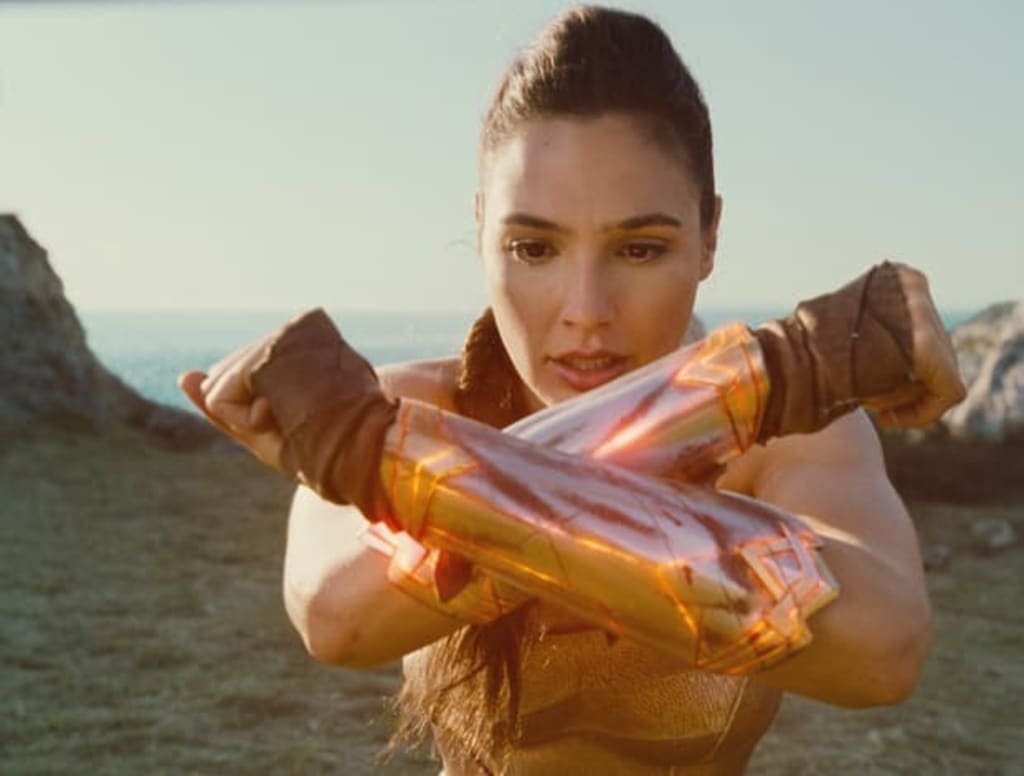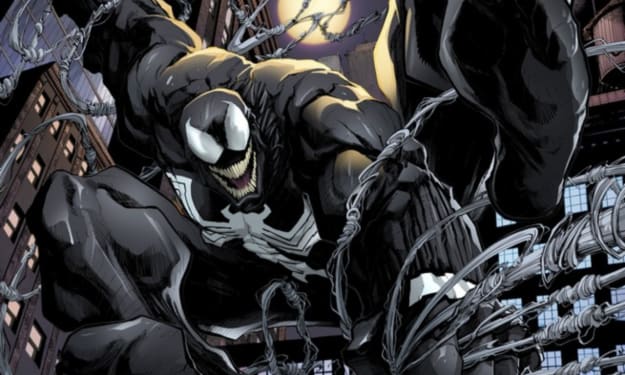
At first glance, Wonder Woman is steeped in the legends of Ancient Greece. After all, this is a film starring a warrior woman who was brought up by the Amazons on the island of Themyscira, and the villain is none other than Ares himself. Dig a little deeper, though, and director Patty Jenkins has produced a fascinating film that blends Greek legends with a very different theology. Yes, you'll actually find strong echoes of Christian imagery, especially Messianic imagery.
The Creation Story
Early on in the film, we're given a whistle-stop tour of the history of mankind. Zeus is presented as the all-powerful creator of all things, with humanity essentially the crowing glory of his creation. What's more, Wonder Woman tells us that humanity was created as something "good" (a refrain that's repeated throughout the film), but a corrupting influence entered the world; Ares. He whispers evil lies into the hearts of men, tempting them from goodness, and ultimately leading humanity down a dark path.
For all the talk of Ares killing the other gods, there are really only two gods who are relevant to this film: Zeus (goodness and hope) and Ares (evil and destruction).
It's a deliberate parallel to the Biblical Genesis narrative. In the Bible, we read that God originally created a world without pain and suffering; a perfect world where relationship was central. Genesis tells this story in poetic language, constantly returning to a central refrain: "And God saw that it was good."
In pretty much the same way, in the Biblical narrative, an enemy entered the world: Satan. Unlike in Patty Jenkins's mythology, Satan is presented by the Bible as a force of evil who is by no means God's equal in any sense. Regardless, though, the method is the same; to whisper lies, to tempt humanity down a path that brings darkness to the world. In fact, Ares's power to influence humanity is a deliberate mirror of the role Satan has; the Bible refers to him as the "father of lies," and considers false accusations and twisted truth to be his greater strength.
n the Bible, God's answer was Jesus. He sent His own Son as both a moral figure and, ultimately, as a sacrifice for sin. Jesus is presented as at one with his Father, sharing in His divine nature and power. He's seen as God's ultimate gift to humanity. Similarly, in Wonder Woman, it's his daughter who (in some unexplained way) shares his divine nature and power that is Zeus's final gift to mankind. That's most visible in the final battle, when Diana wields Zeus's own lightning against Ares.
This all leads to a sort of temptation scene, with Ares attempting to persuade Diana to abandon her mission. He argues that humanity really isn't worth it; essentially, he claims that humanity is beyond redemption. Wonder Woman, however, comes to a different conclusion. Witnessing the sacrificial death of Steve Trevor, she recognizes that mankind contains both good and evil. Although she accepts that humanity does not deserve redemption, she also insists that humanity is not beyond it.
Again, there are deliberate parallels. In the Bible, before Jesus went to the cross he was tempted by Satan, who attempted to persuade him humanity was not worth the pain. Instead, Jesus embraced the cause of redemption, allowing himself to die as a sacrifice for sin. Although Wonder Woman doesn't parallel to that extent, it's notable that Diana descends from the heavens and takes the shape of a cross, with her arms outstretched.
Gods and Monsters
Over in the comics, the #DC universe has often been referred to as a world of "gods and monsters." It's now clear that theme is becoming a prominent part of the #DCEU. We're four films into the DCEU now, and three of them (Man of Steel, Batman v Superman: Dawn of Justice, and Wonder Woman) contain strong Messianic imagery. Man of Steel, like Wonder Woman, introduces us to a superhero who is a father's gift to humanity; Batman v Superman comes to a head with Superman's sacrificial death, and the camera even pans out to show the shape of a cross. The first teasers have already revealed that Justice League will continue that Messianic imagery.
Of course, there's a certain degree of irony to this. Last year, Geoff Johns launched the hugely-successful #DCRebirth, which reinvigorated DC's comic book sales. In the immediate build-up to Rebirth, he closed off an event known as The Darkseid War with a powerful declaration from Superman: "We were never gods!" Over in the comics, the writers have carefully stripped away some of the 'divinity' of the characters in order to emphasize their humanity. In the DCEU, however, the focus is on the characters as Messianic figures — essentially, types of Christ.
As you can see, Wonder Woman doesn't just tap into the mythology of Ancient Greece. The film dives head-first into Christian imagery too, carefully mirroring so much of Diana's experience and story with the life of Christ. It's a smart approach, as, on its most basic level, it helps us to relate to the film and the characters. After all, for all we often talk of now living in a post-Christian world, most of us still more familiar with Christian imagery than we are with Greek mythology!
About the Creator
Tom Bacon
A prolific writer and film fan, Tom has a deep love of the superhero genre.






Comments
There are no comments for this story
Be the first to respond and start the conversation.